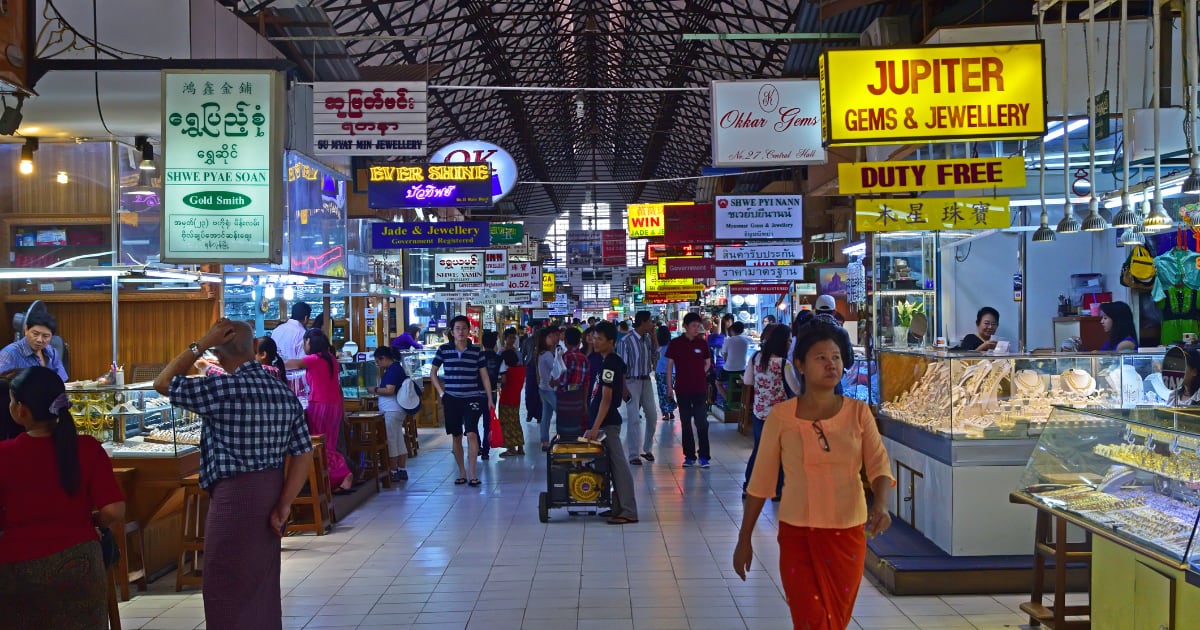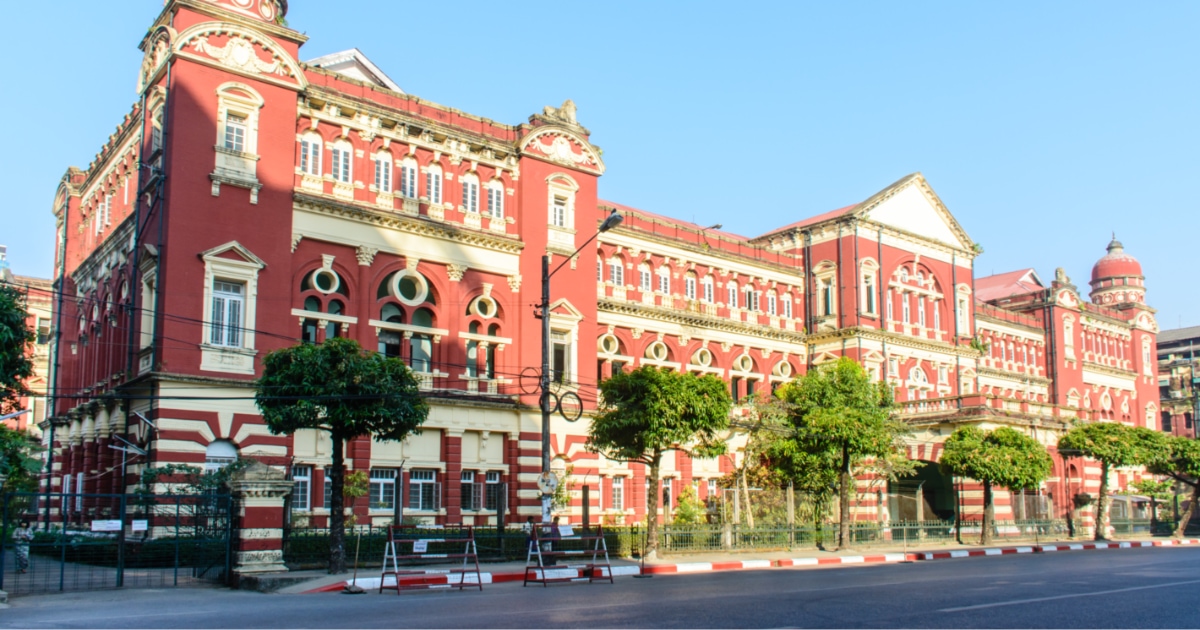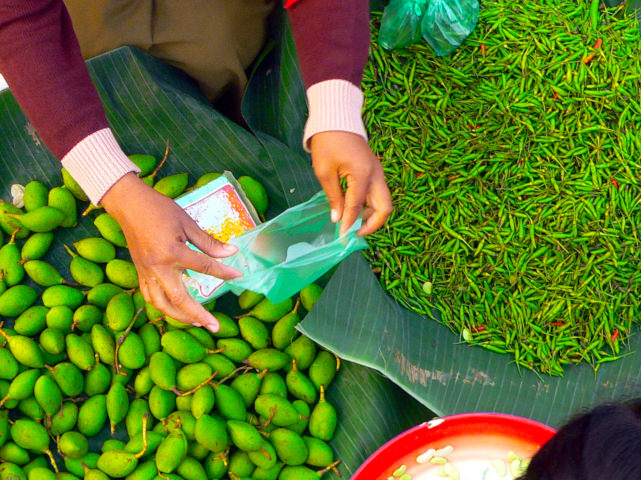Myanmar Highlights
March 2018
Yoma Strategic Holdings Limited (“Yoma”) has announced it has agreed to acquire a 34% share in Digital Money Myanmar Co., Limited (“Wave Money”) from First Myanmar Investment Company Limited (“FMI”) for US$19.4 million. Following the acquisition, Telenor Myanmar Limited will own 51% of Wave Money, Yoma will own 34%, FMI 10% and Yoma Bank Limited 5%. The acquisition marks Yoma’s expansion into Myanmar’s fintech sector. Yoma proposes to leverage Wave Money’s extensive existing network, future cooperation with strategic partners , and synergies with its existing automotive and consumer businesses, to grow the financial services platform. Yoma anticipates that financial services will eventually become one of its core businesses, a so-called ‘Fourth Pillar’ alongside its extensive existing interests in the real estate, consumer and automotive and heavy equipment sectors. According to Yoma’s Executive Chairman Mr. Serge Pun, a lack of credit and access to financial services is hampering growth in Myanmar, Yoma “aims to push innovative mobile financial services, including payment and credit extensions, to drive efficiency in the sector. Wave Money has an excellent head start with its broad reach across the country, and is a platform that we will leverage as we develop our offering in the sector”. In October 2016, Wave Money became the first Myanmar fintech company to be licenced under The Central Bank of Myanmar’s Mobile Financial Services Regulations. Wave Money now has 1.3 million customers, (which is roughly equivalent to approximately 2.5% of Myanmar’s population) and a network of more than 20,000 agents across Myanmar including in rural areas with limited or no access to traditional banking services and/or facilities. In the year ending 31 January 2018, Wave Money’s revenue grew by 1130% and daily transactions increased 2639%. (Source: https://www.finextra.com/pressarticle/72879/yoma-rides-fintech-wave-in-myanmar-with-stake-in-wave-money; 6 March 2018)
Catalist-listed Memories Group to acquire Myanmar luxury yachting business
Myanmar tourism company Memories Group Limited (“The Memories Group”) has entered into an agreement to acquire a luxury yachting business in Myanmar. The Memories Group, which listed on the Catalist market of the Singapore Stock Exchange in January 2018, will pay 1.3 billion Kyats (or approximately US$1 million) for Burma Boating Limited (“Burma Boating”) pursuant to a share sales and purchase agreement entered into with Tint Tint Travel Limited, Tours Company Limited, and Freepier Limited. According to The Memories Group the acquisition is earnings accretive and part of an expansion plan in Myanmar’s tourism market. Burma Boating, which operates in southern Myanmar’s Mergui Archipelago, generated revenue of approximately US$1 million in the year ending 31 March 2017. Pursuant to the agreement The Memories Group will acquire Burma Boating’s brand, contracts, bookings, and assets. Burma Boating owns an 85-foot (25.9-metre) four-cabin yacht (the ‘Meta IV’), and is a part owner of six other sailing yachts and one motor yacht and has secured pre-bookings up to the end-May 2019. (Source: https://www.businesstimes.com.sg/companies-markets/memories-group-inks-13b-kyat-deal-for-luxury-yacht-business-in-myanmar; 5 March 2018)
Condominium Rules expected to lead to increased activity in Myanmar’s real estate sector
Increased activity is expected in Myanmar’s property sector in 2018 following the introduction of investor-friendly rules implementing Myanmar’s Condominium Law (2016). The Condominium Rules (2017) (“Condominium Rules”), issued by the Ministry of Construction ease restrictions on foreign ownership, clarify certain aspects of the Condominium Law and provides additional protections for buyers. The implementation of the Condominium Rules is expected to boost condominium sales and reduce excess supply in the marketplace, particularly in the mid – to high end of the residential market. They are also expected to lead to the development of new projects particularly in Yangon, where the majority of foreign property investment is focused.
Pursuant to the Condominium Rules, overseas buyers are permitted to acquire up to 40% of the total floor area of a condominium, rather than 40% of units located above the sixth floor of a complex, which was the position historically. The Condominium Rules also allow prospective foreign buyers reside in lower-rise buildings. Additionally, foreign investors can now participate in foreign-local joint ventures (“JVs”) to develop condominiums. It should be noted property development JVs are required to obtain a permit from the Myanmar Investment Commission and local Government approval. In addition to expanding purchasing rights for foreign investors, the Condominium Rules also provide greater safeguards for purchasers. The Condominium Rules place a number of restrictions on developers by codifying terms for ‘off-plan sales’. Developers can only pre-sell units once 30% of the foundation has been completed, a measure aimed at providing increased protection to unit purchasers, while also allowing builders to generate the cash flow needed to finance ongoing projects. The Condominium Rules additionally require that 20% of the total project costs are deposited by the developer with its bank before titles for a unit are issued. The Condominium Rules apply to existing buildings, as well as those currently under development.
While the Condominium Rules are expected to lead to an increase in demand in the condominium segment of the property market, the broader market should also benefit from increased demand for units in the mid-range bracket. This segment of the market is currently underserved due to a limited supply of studio and one-bedroom units, providing opportunities for developers to expand into an area of strong and rising interest. According to Melvyn Pun, CEO of Yoma Strategic Holdings, the number of lower-tier residential properties is expected to increase in the coming years in line with the growing availability of mortgages in Myanmar. This, coupled with the introduction of the Condominium Rules, will support sector growth.
The decision by the government to delay the implementation of the new Myanmar Companies Law until August 2018 could have an adverse effect on the property market’s performance in the coming months. The Myanmar Companies Law removes certain restrictions on foreign companies operating in Myanmar. Under the Myanmar Companies Law foreign investors will be able to acquire up to 30% of a Myanmar-owned or ‘local company’ without the company losing its ‘local company’ designation and being reclassified as a ‘foreign-invested company’. This will allow foreign investors acquire interests in local property development companies. (Source: https://www.mmtimes.com/news/regulatory-reforms-set-heighten-real-estate-activity-myanmar.html; 9 March 2018
Myanmar Centre for Responsible Business urges Myanmar Government to rethink its approach to mineral resource development
The Myanmar Centre for Responsible Business (“MCRB”) has published a sector-wide impact assessment (“SWIA”) of Myanmar’s mining industry in which it urges the Myanmar Government to reconsider its approach to mineral resource development. The MCRB argue a fundamental rethink is necessary if Myanmar wants to attract responsible mining investment and address historic problems. According to the MCRB the legal framework regulating Myanmar’s mining sector lacks consistency and clarity while the capacity of the Government as well as third parties to monitor mining activities is limited. According to the Yangon-based MCRB “a fresh start, a clear policy vision, and simple laws to underpin it, are essential if mining is ever to contribute to sustainable development in Myanmar.” The SWIA draws upon the findings of field research focused on tin, gold and limestone mining in eight states and regions across Myanmar. The report found that there are few environmental, social and human rights protections in Myanmar’s mining sector, and widespread poor practices – observed to prevail at even larger established mines – are having a significant adverse impact on the environment and society. The SWIA identifies the following five main challenges to achieving responsible mining in Myanmar:-
- policies, laws and regulations relevant to mining activities lack clarity and inhibit responsible investment;
- the capacity of government and business actors to monitor and address environmental, social and human rights impacts of mining is limited;
- the environmental, social and human rights costs of mining are being externalised on local communities;
- the governance of mining in conflict-affected areas is highly problematic;
- the extensive informality in Myanmar’s mining sector (i.e. artisanal and small scale mining, which is often carried out illegally and without supervision and/or controls) needs to be addressed.
The MCRB found that in terms of mining legislation, inconsistencies were found between the Union-level requirements outlined in the 2012 Environmental Conservation Law and permissions issued at state/region-level regarding permissible distance of mining activities from water sources. There is also lack of consistency between the Mining Rules and certain EIA Procedures. The SWIA further concluded that a rethink is necessary if Myanmar hopes to develop the modern ‘Mineral Rights Cadaster’ it is required to establish in order to meet EITI Standards (i.e. the minimum standards for transparency in the management of resources in the oil, gas and mining sectors required by The Extractive Industries Transparency Initiative). International organizations such as the International Monetary Fund and the World Bank as well many private financial institutions and institutional investors have committed to making ‘EITI compliance’ or ‘EITI Validation’ a precondition to their financing of and/or investment in mining projects. The MCRB recommends the Government embark on a transparent consultation process as part of its development of a new National Mineral Resources Policy. (Source: https://www.mmtimes.com/news/myanmars-approach-mining-needs-rethink.html; 9 March 2018)
Myanmar traders anticipating increased trade on back of new sources of trade financing
The Central Bank of Myanmar (“CBM”) has granted approval to seven foreign banks to provide trade financing services in Myanmar. In December 2017, pursuant to a policy-change allowing foreign participation in the sector, the CBM received applications from 13 foreign banks seeking permission to offer trade financing. The CBM has confirmed that the remaining five banks will receive CBM approval over the coming months. Foreign banks can letters of credit (“LCs”) to the seller, or exporter of Myanmar goods providing for payment upon presentation of documents detailing a list of the goods that have been shipped. The banks can also provide loans at low interest rates to the exporters to cover for periods of tight cash flows between shipping on the basis of an export contract. At present, local banks are unable to provide LCs and most trading businesses can only receive funds through telegraphic transfer. This means that importers of Myanmar goods are forced to pay for the goods on a Free on Board (“FOB”) basis. FOB contracts relieve the seller of responsibility once the goods are shipped. The buyer assumes liability after the goods are loaded and leave the port in Myanmar. It is the buyers` responsibility to engage freight-forwarders which can be costly and inconvenient. Myanmar’s exporters would prefer to be able to ship goods to buyers on a Cost, Insurance and Freight (“CIF”) basis. When goods are sold on a CIF basis, the seller engages the freight forwarder, the costs of which form part of the overall transaction costs. Although the buyer may have to pay additional port fees, such as docking fees and customs clearance fees, before the goods can be cleared, CIF shipping is preferable as it eliminates the inconvenience for the buyer of having to engage a local freight forwarder themselves. The CBM has yet to issue any information in respect to the permitted interest rate and loan amounts. (Source: https://www.mmtimes.com/news/traders-expect-better-business-wider-trade-financing-options.html; 13 March 2018)
Memories Group
Myanmar Centre for Responsible Business
Condominium Rules
Wave Money
Burma Boating
Central Bank of Myanmar
Myanmar Companies Law
Serge Pun
Mineral Rights Cadaster’
Melvyn Pun
FMI
MCRB
CBM
This newsletter is for information purposes only. Its contents do not constitute legal advice and it should not be regarded as a substitute for detailed advice in individual cases.
Transmission of this information is not intended to create and receipt does not constitute a lawyer-client relationship between Charltons and the user or browser.
Charltons is not responsible for any third party content which can be accessed through the website.
If you do not wish to receive this newsletter please let us know by emailing us at unsubscribe@charltonslaw.com








